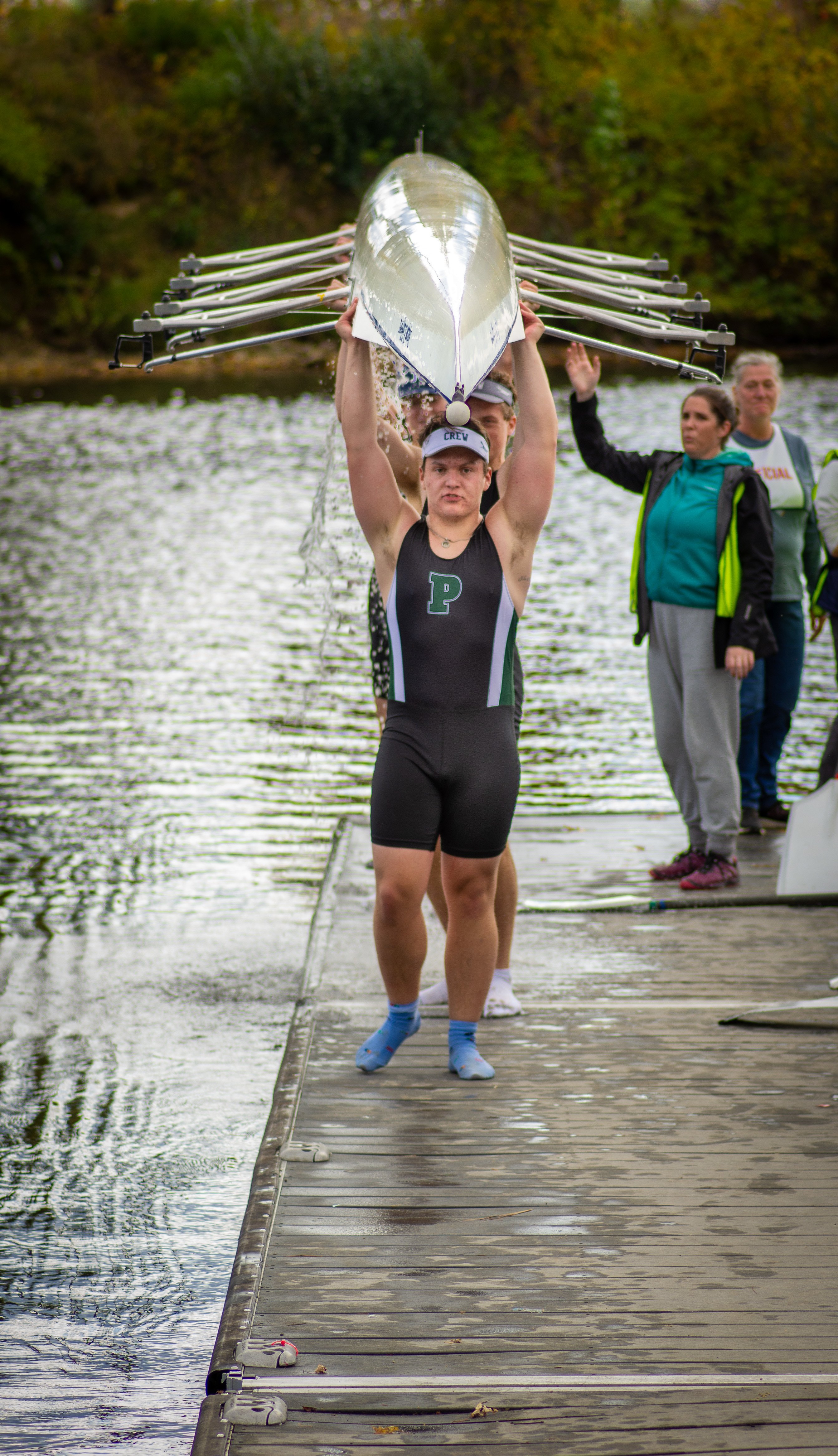Proctor’s Crew Team has grown from a fledgling sport at Proctor with a few interested students six years ago to a robust program and almost 40 rowers this fall. Under the leadership of Geoff and Beth Sahs, P’25 and captains Mason Guerster ‘22 and Johnny Mutkoski ‘22, Proctor’s boys’ and girls’ Crew Teams recently competed in the New Hampshire Championship Regatta in Pembroke, NH. Mason and Johnny share insights on their season to-date and the team’s hard work over the past two months in preparation for their regatta. Thank you to Erik Cole Johnson, P'20, '25 for the action shots in this post.
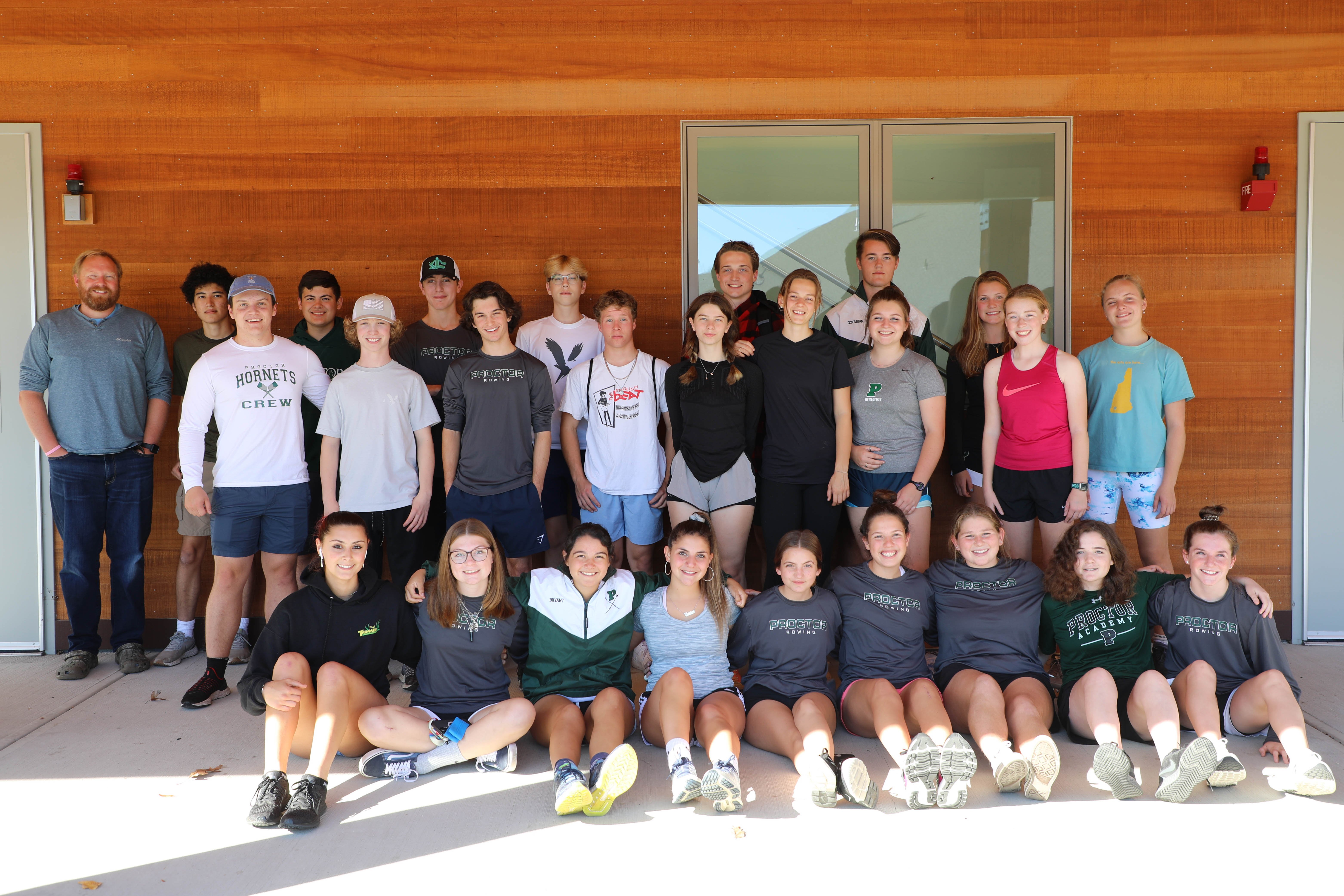
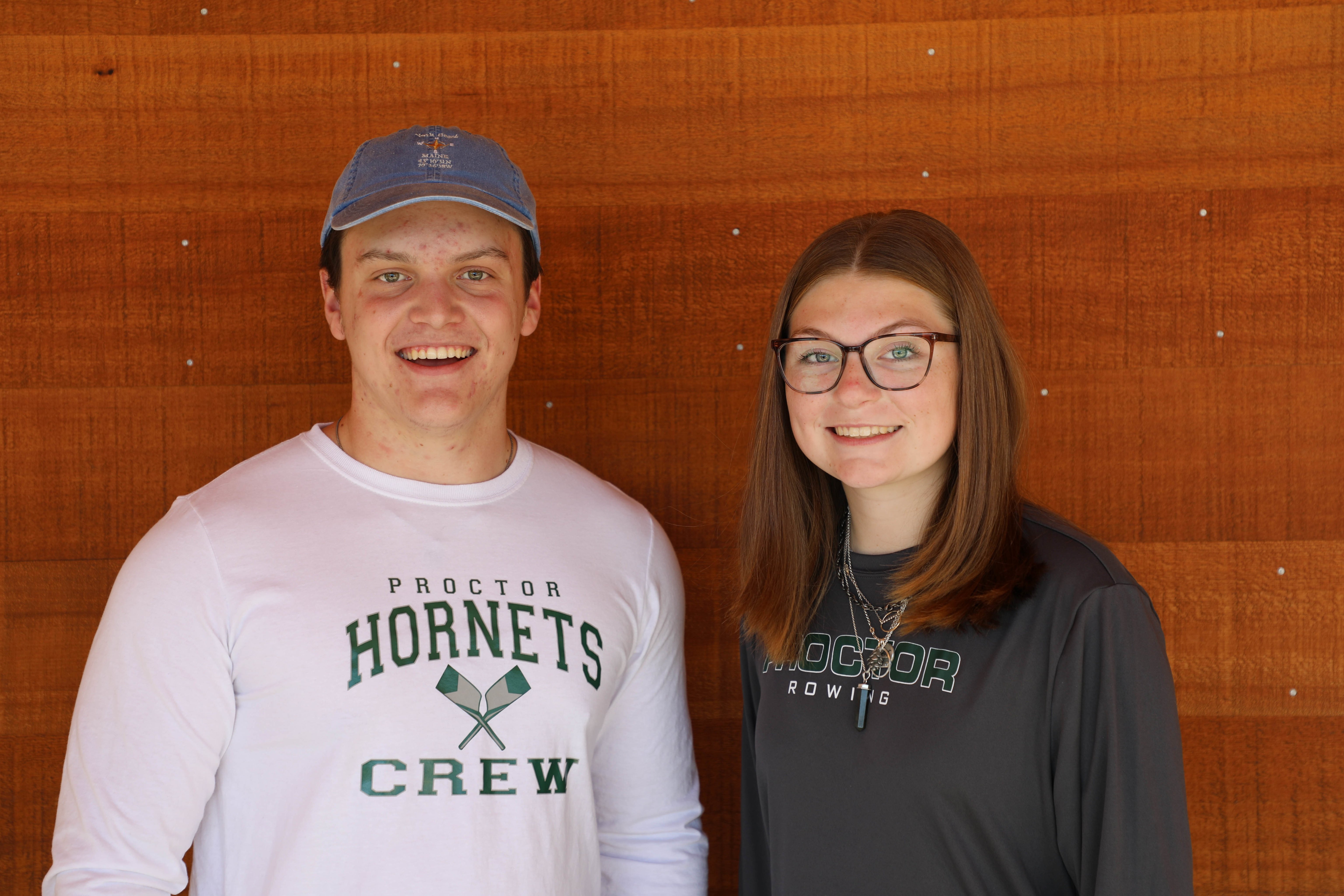
With nearly 40 rowers on this year's team, why do you think the culture of this team has attracted so many interested students?
Mason Guerster ‘22: I know when I came to Proctor I really wanted to find a Fall sport that still gave me a great team dynamic, but also wasn't a contact sport. Crew has a great workout component to it, and you also become really close with the people in your boat.
Johnny Mutkoski ‘22: I think the idea of getting out of people's comfort zones is something everyone is excited about as we exit COVID-19, and crew is the perfect sport for getting out of your comfort zone. It also is a phenomenal conditioning sport as it utilizes every muscle, so we get a lot of kids looking to stay in shape for their other sports who join the team.
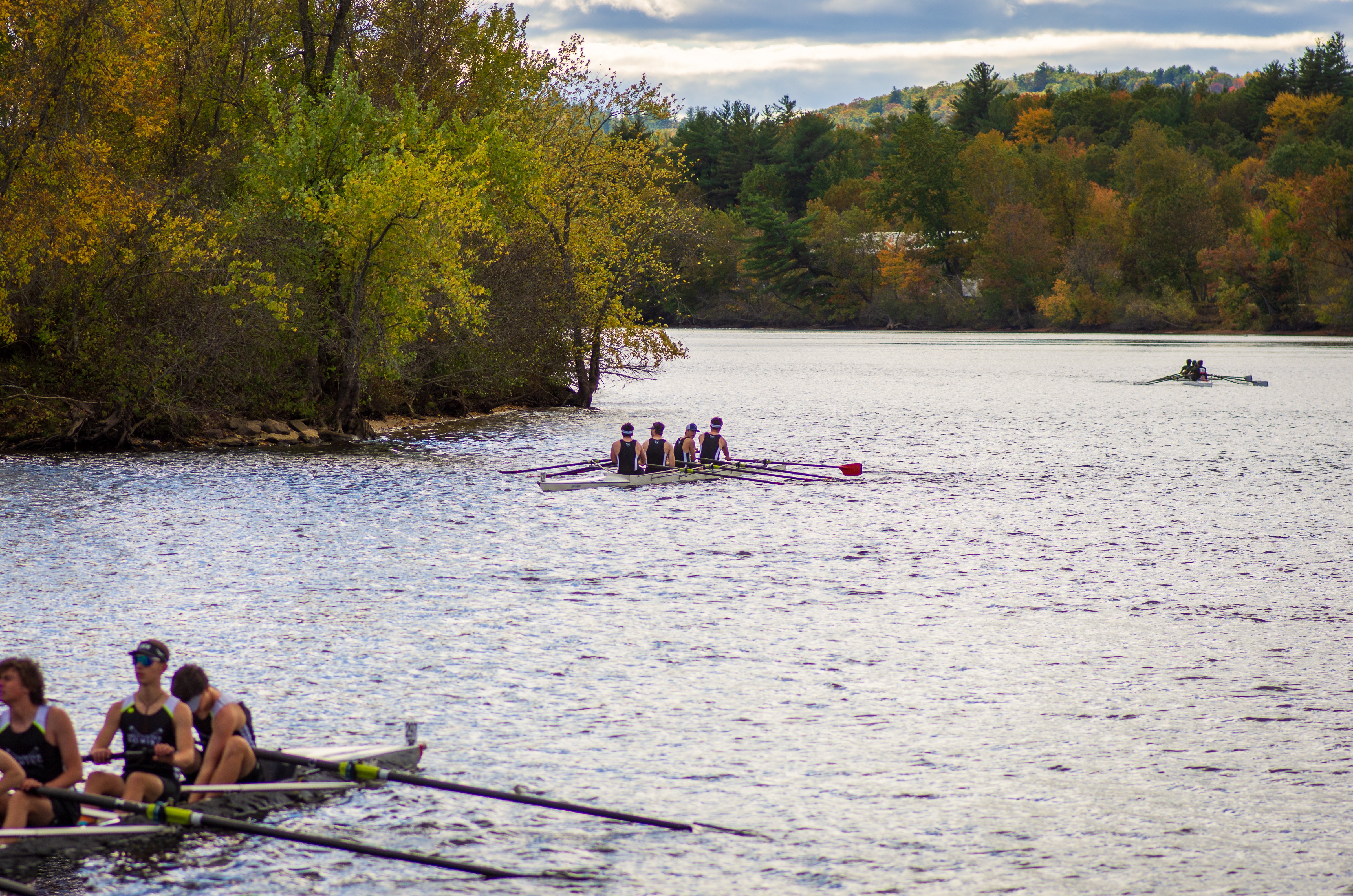
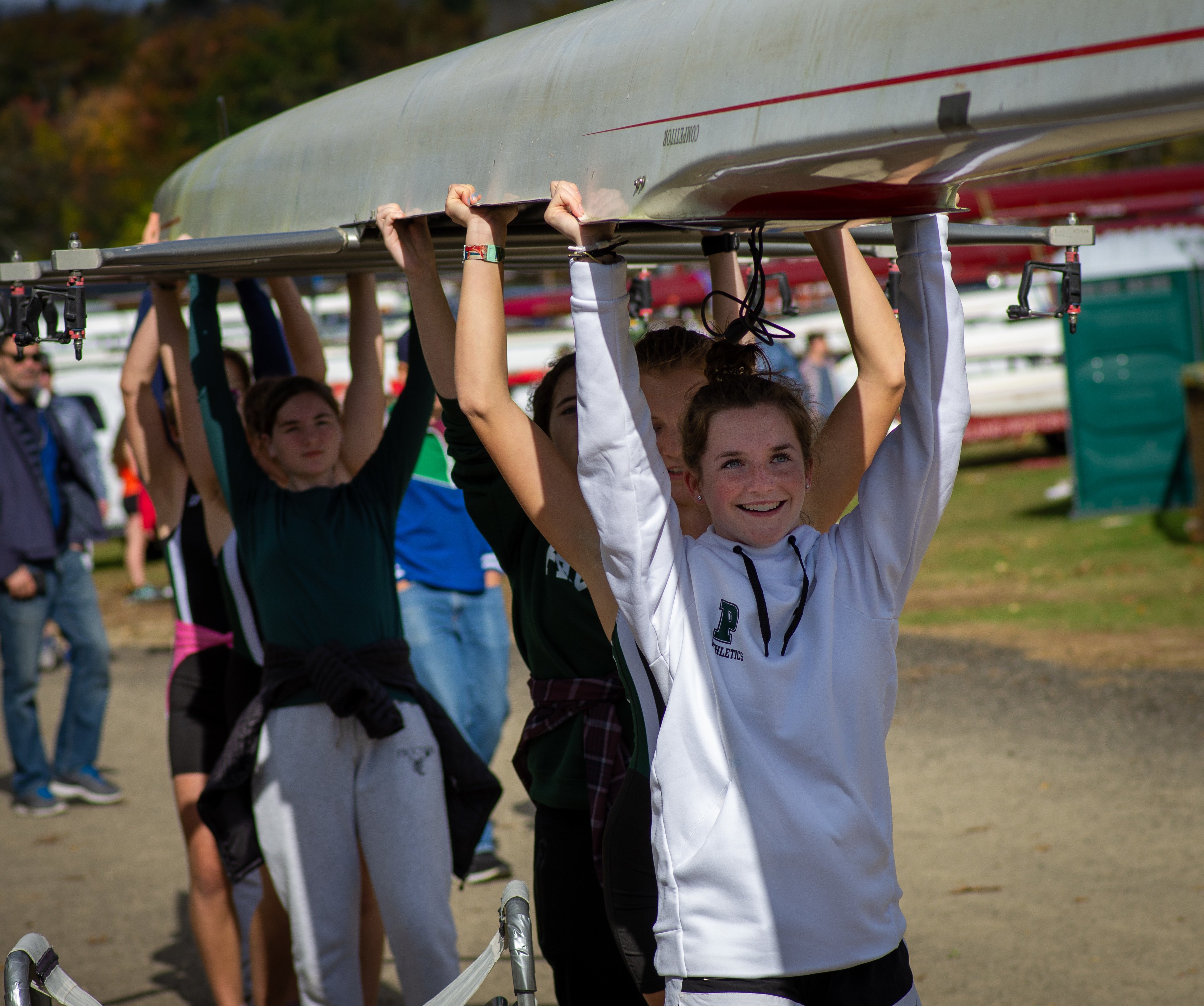
Unlike many of our athletic teams, we rarely get a window into crew's daily routine outside of the days you spend erging at the Outdoor Center, can you share what a "normal" week in the life of Proctor Crew looks like?
MG: Thanks to the warmer weather we've been having this season, we have been able to be out on the water almost every day. We leave here around 3:15 and drive to Lake Sunapee, where we borrow boats from the Lake Sunapee Rowing Club. Coaches Beth and Geoff Sahs drive to get the launches while we launch boats. When we are prepping for a regatta, the racing boats will typically practice together all the time. We also have some boats that shift around just to get people some experience in boats. We typically get on the water at about 4, and come in around 5:15. On Wednesdays and Saturdays, we leave here at 2 which gives us a lot more time on the water.
JM: Our main goal is to get out onto the water as much as possible. Most days, unless the wind is too strong, we head to Sunapee lake and we get the boats off the racks. We then walk them into the water. We will row about a 2k out to a lighthouse then back in for a total of 4-5k each day. We usually then get back on campus around six. On days where we aren't going to the water, we will do an interval system where some kids erg and others do a body circuit and stretch in the Fitness Center or on the porch of the Outdoor Center.
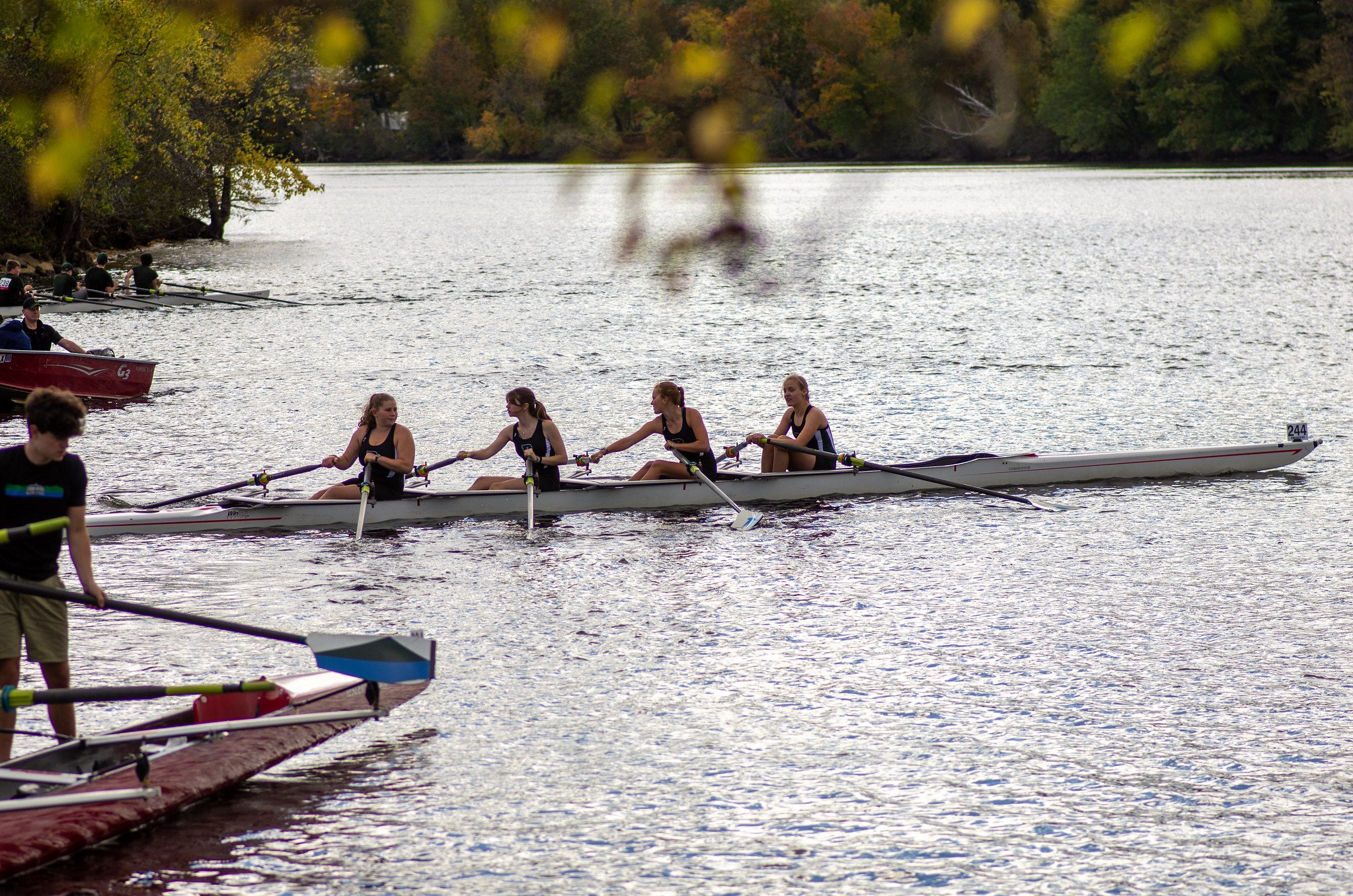
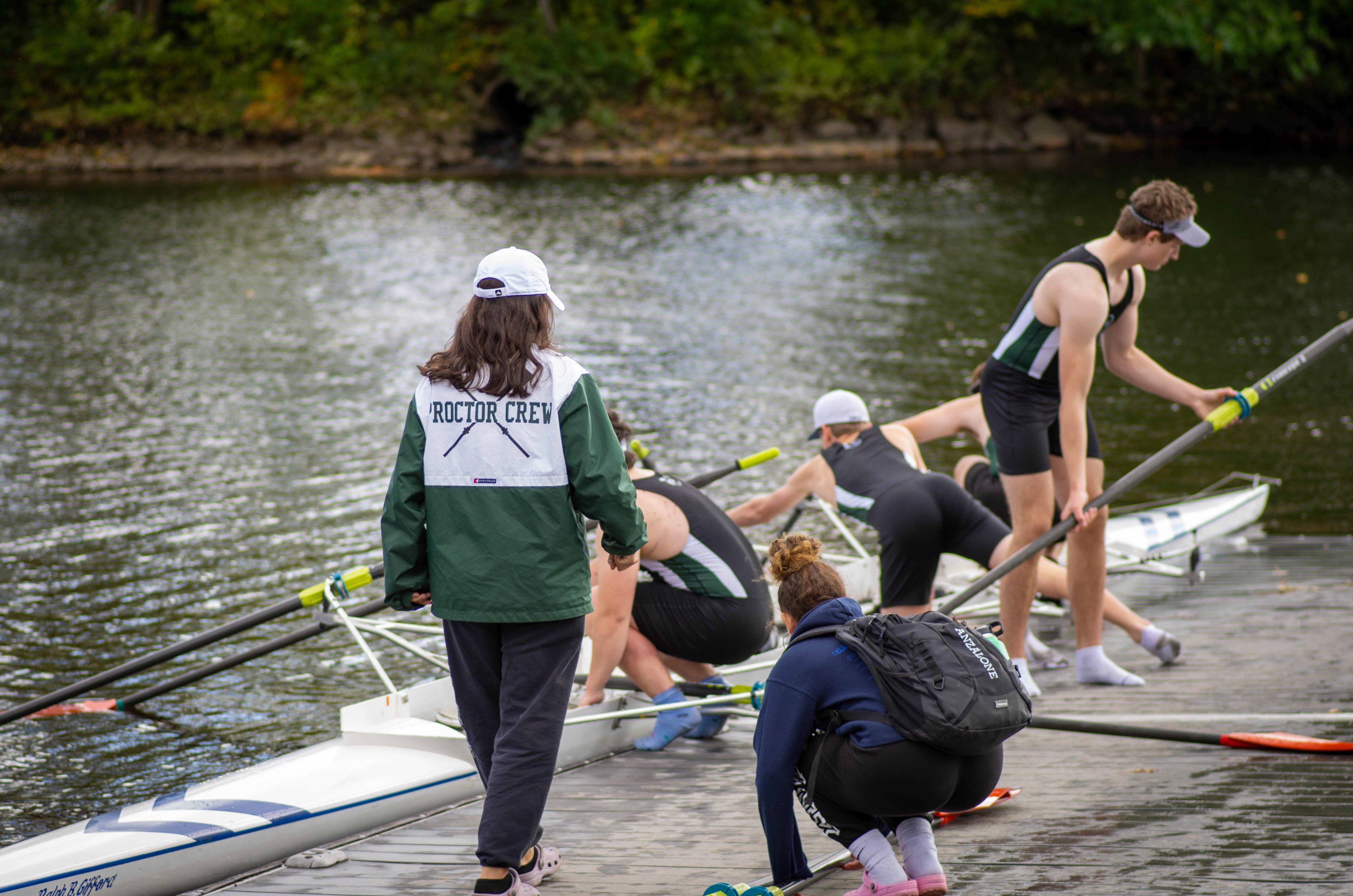
What are some of the individual/team/boat accomplishments from your recent regatta?
MG: I think our boats have all worked really hard to get the results we got in the regatta on Sunday. Our ladies 4+ was a last minute addition to the regatta, and they absolutely killed it. Our main focus was just trying to row together and in sync. As a coxswain, you can definitely feel when the boat is connected. Although we only had a few practices as a boat, I truly think that this regatta was the best our boat had ever rowed together. The conditions were really tough for everyone, and keeping up motivation was no easy task. We had two first year rowers in the boys quad as well, and they had an awesome race. Our girls quad had some technical difficulties after a last minute hull switch, but eventually pulled through with the second best time in their fleet. Phoenix and Lucy had a stellar race in the double. As they came around the bend we could see how in time they were with each other which was really cool. The team brought so much great energy to the regatta yesterday, and it definitely made a huge difference. I think every first year rower on the team deserves a shoutout for working so hard at a brand new sport.
JM: Our jr 4x women's boat came in second for their race and the men's junior 4x boat came in 4th missing 3rd by 2 seconds, both outstanding results.
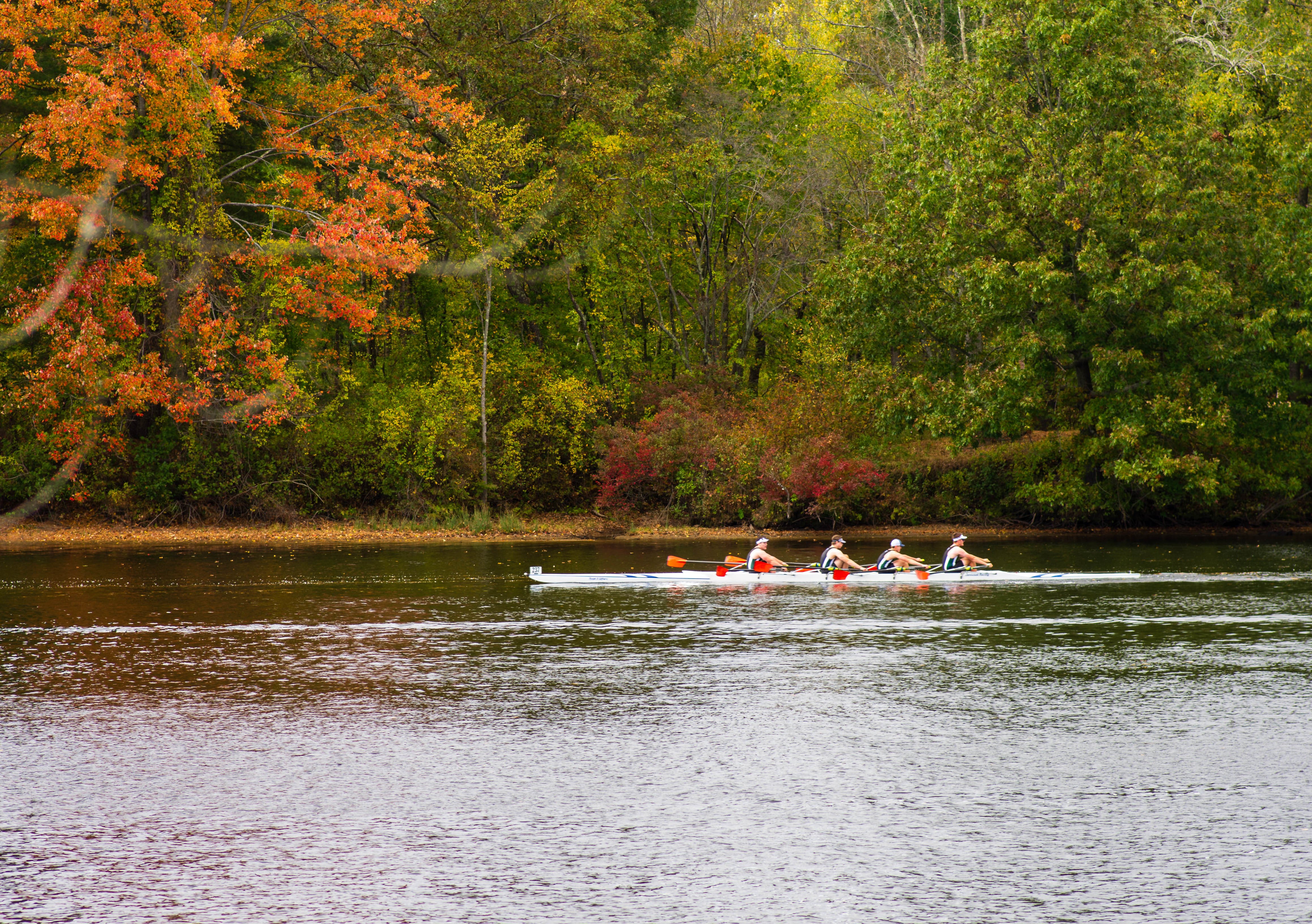
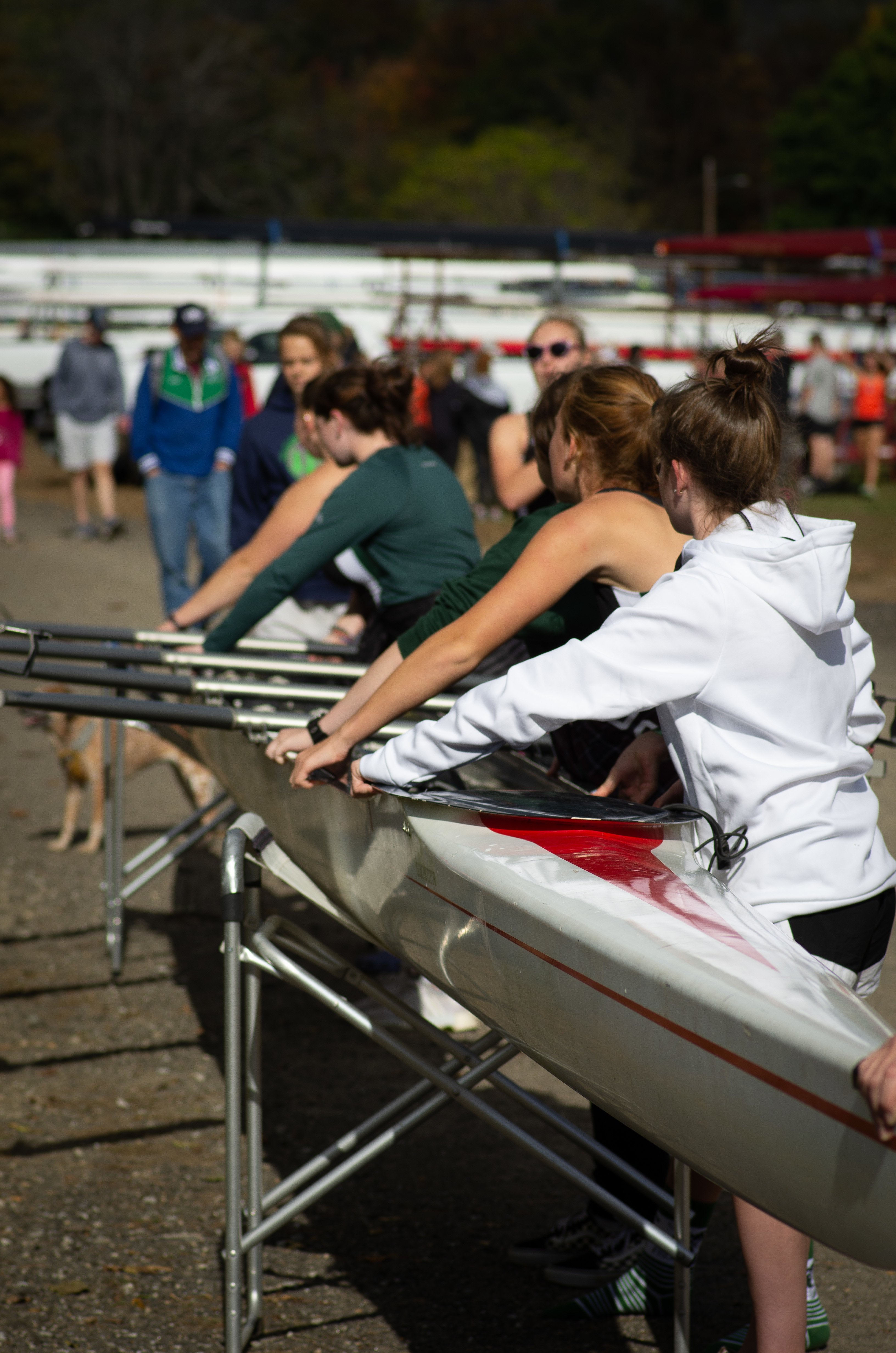
What are some of the unique challenges Crew presents as a team sport?
MG: I think oftentimes people don't realize how much of rowing is having the right mindset. It can be so mentally exhausting to be in the middle of a race and have to push through all the pain. You can't just stop rowing when you get tired, your team is depending on you. Rowing only works when everyone works together. One of the other big challenges we see as a crew team is the amount of time we get to be on the water. Aside from the unpredictable fall weather, we really only get an hour a day. Some of the teams we see at regattas can have as much as three times that amount. Our team as a whole has a lot of potential, but sometimes it's hard to get into a rhythm in such a short amount of time. We also don't have our own boats, which means we aren't the only people using them. Even if we take great care of the boats we use, we can't control who comes in and uses them after us. Crew equipment can be really expensive, and even if we did have our own boats there would be nowhere for us to keep them.
JM: I think learning to communicate with your boat is the most important and challenging part of crew. As bow seat, it is my job to steer the boat and give orders. This means I have to learn how each kid rows in my boat so I can help them as much as possible with my commands. Trying to teach the novices is also a challenge as it involves teaching them something completely new almost as if you're teaching a kid to ride a bike for the first time.

